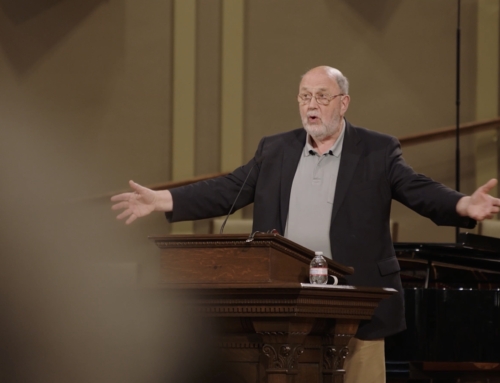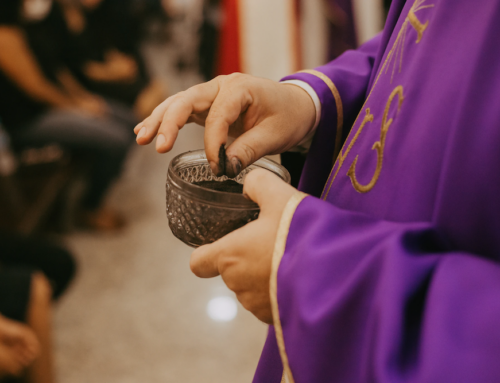I came to faith through the Anglican tradition and am what some refer to as a Cradle Episcopalian in that I was raised and nurtured to believe within theses hallowed church halls. Much of that faith formation was laid in me through the rich liturgy and regular scripture reading as found in the Book of Common Prayer.
Specifically, the Psalms have been a persistent voice in my life as the assigned readings for daily/personal devotions and the Sunday lectionary are anchored in the Psalms. The assigned readings for each day follow a pattern and the constant component is always a portion from of the Psalter.
Voicing Our Emotions
Our Christian worship is rooted in the Jewish traditions and the psalms lay a common foundation for worship and devotion. They become and essential voice, as in a choir singing the melody and leading the composition to crescendo and resolve. The Psalms in and of themselves establish a blueprint for our corporate worship and personal devotion and are given as an essential in following Jesus as our Lord and King.
The Psalms cover a wide range of emotions. There is great joy, praise and thanksgiving combined with doubts, fears, questions, frustration, anger and even a steady cry of lament. They are real and at times raw, fleshing out the human experience. In a time when some people tend to gloss over life’s pains, even denying them; the psalms teach us not to and that God is found in the midst of conflict, struggle, suffering and sorrow. For these reasons alone we should journey with the psalmists as a regular companion in life.
Training for Discipleship
In the recent Star Wars series, The Mandalorian Luke Skywalker makes an appearance and makes this statement concerning another player in the narrative; He is strong with the force but talent without training is nothing. The Psalms offer us a comprehensive and essential training as a disciple. We may have deep spiritual experiences and encounters, we may sense instinctively and with intuition the ways of God, we may excel in spiritual gifts even being called talented, but we need to be trained and there is no better teacher, trainer and guide than the Psalms. They offer a full understanding and landscape of the discipleship journey.
Many have been shaken by recent world events; a global pandemic, political unrest, natural disasters, injustice, violence. We may think this is unprecedented, it is not. In every era cultures and societies have experienced tragedy, calamity and loss. Much of the content of the Psalms was birthed from like trials and difficulties; these sacred words have much to instruct us in our Kingdom education and orientation to the ways of God.
The Second Best Book
I often refer to The Book of Common Prayer as the second-best book we have (next to the Bible). My good friend, author and William Tyndale scholar, David Teems, reminded me of this quote from Stephen Greenblatt; Without Tyndale’s New Testament and Cranmer’s Book of Common Prayer it is difficult to imagine William Shakespeare the playwright.
The Book of Common Prayer has fueled the worship of the church for nearly 500 years. It offers structure, movement and many regard it as the desired pulse for our devotion. Components of praise, confession, absolution, creeds, intercessions, thanksgivings move us along into the nearer, felt presence of Almighty God; Father, Son and Holy Spirit.
The whole of the Psalter is contained in the Book of Common Prayer, all 150 Psalms. This translation though accurate is more poetic in nature. You would not want to use this version for detailed biblical studies or linguistics, it serves a different purpose. The rhythm and cadence of these words dance across our ears when spoken individually and corporately and bids us to consider a different meter and pace for all that life is. The Psalms act as a doorway as we enter spaces that mirror and reflect the sum of human emotions and even the dark pain of life becomes bearable in the light cast by the sacred words of the psalmist.
We join the Communion of Saints, those who in every generation have called upon the Lord through the devotional reading of the Psalter. It is ancient and new at the same time. A favorite prayer from the Book of Common Prayer is…
Blessed Lord, who caused all holy Scriptures to be written for our learning: Grant us so to hear them, read, mark, learn, and inwardly digest them, that we may embrace and ever hold fast the blessed hope of everlasting life, which you have given us in our Savior Jesus Christ;
We are to hear them, read, mark, learn, and inwardly digest all of the scriptures and even more so the Psalms. They are to become part of our DNA and do so when we read the Psalms devotionally. What does that mean?
Thoughtful Patience
We exercise a thoughtful patience. By reading one chapter of proverbs and five Psalms a day you can go through these two works in thirty days. I have done this many times over my life and there is a benefit in the sheer quantity of intake. The last few years I have moved to an intentional lingering in these chapters. I contemplate phrases and words, I desire to flow with the content.
I could approach the Psalms asking the scholarly questions involving language, historical context, authors intent, the original hearer’s perspective. I would compare that to receiving a business letter, getting to the point and details and that is an essential scholarship in biblical studies. Devotionally I look at the Psalms as correspondence from a dearly loved friend or family member. I may get some data but more so I am reconnected with someone I love and is a part of my life. The Psalms are a love letter from God to His children. So, I simply listen and pray the Holy Spirit would illumine my heart, soul, strength and mind. I ask, What would the Lord say to me in these words in the here and now?
The Psalter as recorded in the Book of Common Prayer uniquely summons in me deep devotion, appreciation, and understanding. That in turn produces the fruit and the gifts of the Holy Spirit. It cultivates in me a depth knowing and being known and I can spend the rest of my life doing that lone pursuit.
Latest posts by Jon Davis (see all)
- Psalms: Scriptures for Emotions, Discipleship, and Patience - August 12, 2021







